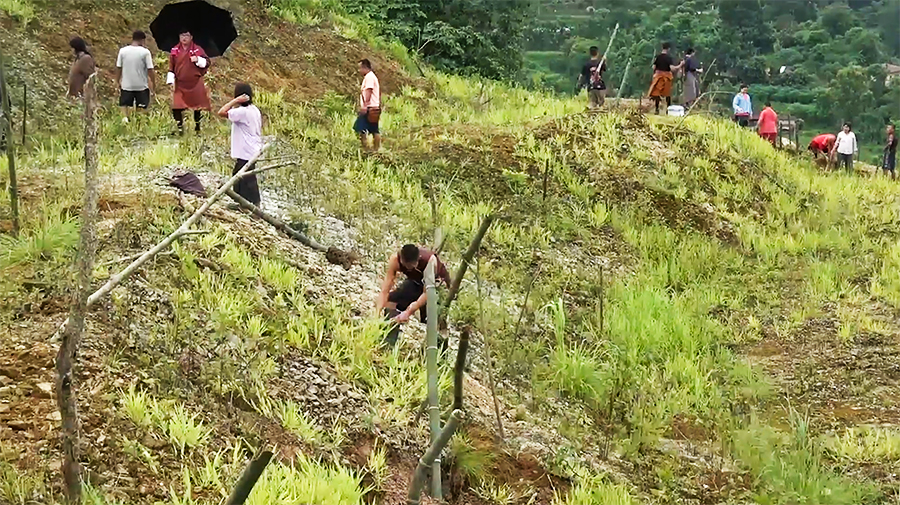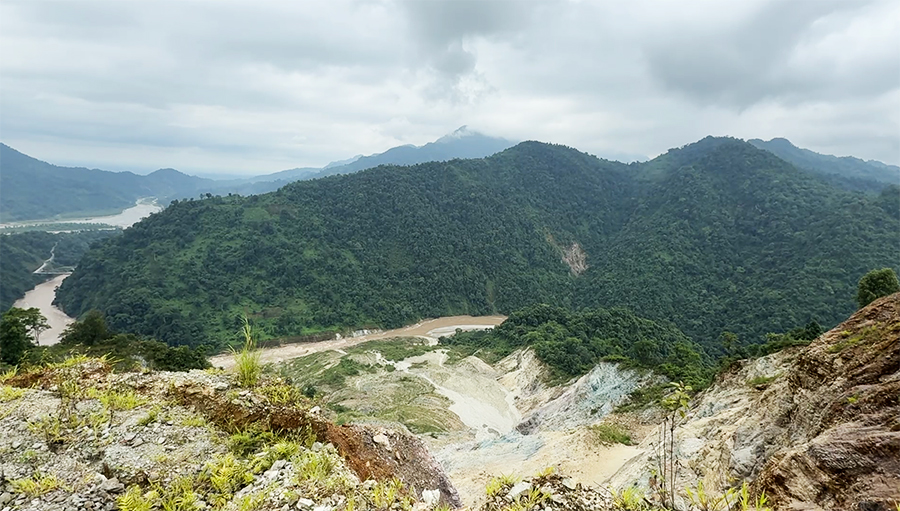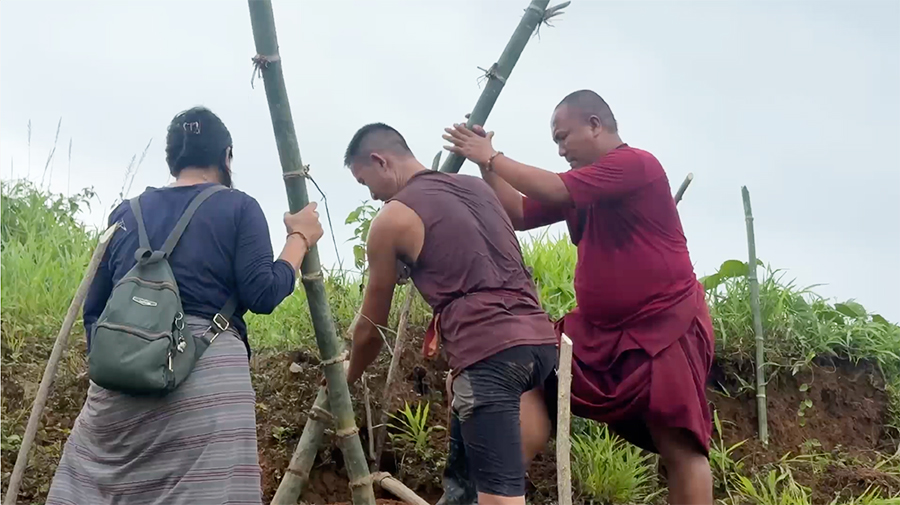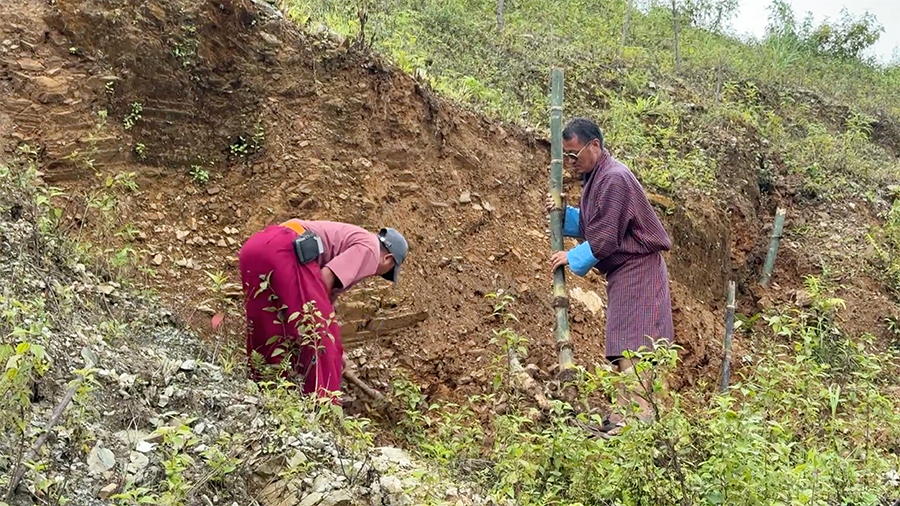 In ongoing efforts to mitigate flood risks from landslides in Pachugang in Phuentshogling, relevant agencies have once again undertaken a mass plantation drive in the area. Building on last year’s successful initiative, officials planted more than a thousand saplings this time to further strengthen soil stability and enhance long-term protection against erosion.
In ongoing efforts to mitigate flood risks from landslides in Pachugang in Phuentshogling, relevant agencies have once again undertaken a mass plantation drive in the area. Building on last year’s successful initiative, officials planted more than a thousand saplings this time to further strengthen soil stability and enhance long-term protection against erosion.
 The landslide at Pachugang is known to be decades old. According to villagers, a minor slide in 2004 marked the beginning of increased activity in the area.
The landslide at Pachugang is known to be decades old. According to villagers, a minor slide in 2004 marked the beginning of increased activity in the area.
In recent years, massive landslides have deposited large amounts of debris along the riverbank, raising concerns over the safety of downstream settlements, both in Phuentshogling and across the border in India.
In response, various mitigation efforts have been initiated, including mass plantation drives aimed at stabilising the soil.
Officials say last year’s plantation has shown promising results.
 Dungkhag and gewog officials and monks from Sangay Minjurling Lhakhang took part in the event.
Dungkhag and gewog officials and monks from Sangay Minjurling Lhakhang took part in the event.
Karma Jurmi, Phuentshogling Dungpa said, “The area was barren with no trees and plants. The soil is loose and there is still the risk of slide. This poses risks to the residents downstream like Phuentshogling and also settlements across the border. So, we are planting trees to stabilize the soil. We did for the last two years and we also did this time.”
Lam Kelzang Tshuelthrim of Sangay Minjurling Lhakhang said, “We dedicate the planting of trees and bamboos to the longevity of His Majesty the Fourth Druk Gyalpo, His Holiness the Je Khenpo, and Her Majesty Queen Mother Dorji Wangmo Wangchuck, as they turn 70 this year. Bamboo, in particular, symbolises longevity.”
Meanwhile, dungkhag officials reaffirmed that continuous mitigation and close monitoring will remain a priority to ensure the long-term safety of the area.
 With sustained efforts and community involvement, authorities hope to gradually reduce the risks posed by the Pachugang landslide and protect lives and livelihoods downstream.
With sustained efforts and community involvement, authorities hope to gradually reduce the risks posed by the Pachugang landslide and protect lives and livelihoods downstream.
Kinley Dem







